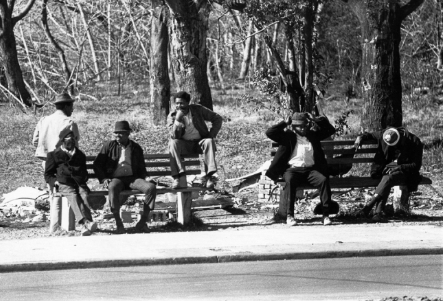domingo, 30 de maio de 2021
XXXV
Distinguish Your Calling From Your Ego
- Both pull you toward the realization of your desires.
- Both can completely consume your waking (and sometimes sleeping) hours with frenetic thoughts and sparks of brilliance.
- They can also manifest very similar outcomes--money, fame, and power.
- And they can both leave you feeling exhausted.
Here are some ways to decipher which one is really driving your work:
Ego fears not having or doing something.Calling fears not expressing or being something.
Ego needs anxiety to survive.Calling needs silence to survive.
Ego manifests as burnout.Calling manifests as fulfillment.
Ego focuses on the result.Calling focuses on the process.
Ego wants to preserve the self.Calling wants to impact others.
sexta-feira, 28 de maio de 2021
Gitanjali 35
Relacionar-se no silêncio e quietude
Nenhum relacionamento pode existir sem a sensação de espaço que vem com o silêncio e a quietude. Meditar ou passar um tempo juntos, em silêncio, na natureza, por exemplo.
Se as duas pessoas forem caminhar, ou mesmo se ficarem sentadas uma ao lado da outra no carro ou em casa, elas irão se sentir bem por estarem juntas, em silêncio e quietude.
Nem o silêncio nem a quietude precisam ser criados. Eles já estão presentes, embora perturbados e obscurecidos pelo barulho da mente. Basta abrir-se para eles.
Se falta um espaço de silêncio e quietude, o relacionamento será dominado pela mente e correrá o risco de ser invadido por problemas e conflitos.Se há silêncio e quietude, eles se tornam capazes de dominar qualquer coisa.
Eckhart Tolle
segunda-feira, 24 de maio de 2021
Partirei
Hiroshima Meu amor
Hiroshima. Nevers.O que une estes dois locais? A destruição?Que destruição poderá Nevers conter que se iguale a uma cidade dizimada por uma bomba atómica?Que horrores terão sido vividos nas suas ruas?De quantas mortes desnecessárias terá sido palco? Nevers. Uma aparentemente doce e bucólica terra francesa, a terra que viu morrer o amor.
Hiroshima tem de ser lembrada sempre, como o têm de ser todas as grandes tragédias. Mas a vida teima em cobrir os acontecimentos desagradáveis com um véu apaziguador. Até que não restem mais do que sombras. Até que comecemos a duvidar que o que aconteceu aconteceu mesmo.
O que une Hiroshima e Nevers?A destruição.A destruição de que pensamos não conseguir emergir.Mas também o esquecimento, a traição de uma vida que o continua a ser, a insustentável leveza do ser de que Kundera falaria.
"Este homem japonês é um homem moderno, esclarecido quanto ao essencial.Nunca se sentirá profundamente deslocado em qualquer país do mundo.Coincide com a sua idade, tanto física como moralmente.Não fez "batota" com a vida.Não teve de a fazer: é um homem que sempre se interessou pela sua existência e sempre o bastante para não "arrastar" atrás de si um mal de adolescência que tantas vezes faz dos homens de quarenta anos falsos adolescentes ainda à procura do que poderiam fazer de forma a parecerem seguros de si.Não é verdadeiramente um sedutor, mas também não é descuidado.Não é dos que andam atrás das mulheres.É casado com uma mulher que ama e tem dois filhos.No entanto, gosta de mulheres.Mas, nunca fez uma carreira de "conquistador".Pensa que esse género de carreira é uma carreira de "substituição" desprezível, e, ainda mais, suspeita.Pensa que quem nunca conheceu o amor por uma só mulher passou ao lado do amor, e mesmo da virilidade.É por não acreditar na virtude dos amores do acaso que vive com esta sinceridade, com esta violência, um amor de acaso com a francesa."
"A francesa sabe que não se morre de amor.Durante a sua vida teve uma esplêndida ocasião para morrer de amor.Ela não morreu em Nevers.Depois, e até hoje, em Hiroshima, onde encontra este japonês, arrasta consigo, dentro de si, a "melancolia" de quem viu adiada a única oportunidade de decidir o seu próprio destino.Não é o facto de lhe terem rapado o cabelo por ter amado o inimigo e de a terem desonrado que marca a sua vida, mas essa frustração de não ter morrido de amor no dia 2 de Agosto de 1944, quando assassinaram o seu amor alemão no cais do Loire.Isto não é contraditório com a sua atitude, em Hiroshima, com o japonês.Pelo contrário, está em relação directa com a sua atitude com o japonês.O que ela conta ao japonês é essa oportunidade que, ao tê-la perdido, a definiu.Ela transporta-se literalmente para fora de si própria e entrega a este japonês, em Hiroshima, o que tem de mais precioso no mundo, a sua própria expressão actual, a sua sobrevivência à morte do seu amor, em Nevers."
sexta-feira, 21 de maio de 2021
Queixa Das Almas Jovens Censuradas
quinta-feira, 20 de maio de 2021
WOLF LARSEN "If I Be Wrong" Official Music Video
The Lady's Handbook for Her Mysterious Illness
The signs are unmistakable. She is exhausted, gluten-free, and likely in possession of at least one autoimmune disease. She is allergic to ____ (everything), aching from tip to toe, digestively impaired, and on uneasy terms with her reproductive system. She is addled, embarrassed, ashamed, and inflamed.She is one of us.
terça-feira, 18 de maio de 2021
In Jerusalem
Solitude
Solitude is dangerous. It's very addictive. It becomes a habit after you realize how calm and peaceful it is. It's like you don't want to deal with people anymore because they drain your energy.~ Jim Carrey
To practice solitude is to practice being in this singular moment, not caught in the past, not carried away by the future, and most of all not carried away by the crowd. You don’t have to go to the forest.~ Thich Nhat Hanh
It's beautiful to be alone. To be alone does not mean to be lonely. It means the mind is not influenced or contaminated by society.~ Jiddu Krishnamurti
If you cannot be at ease with yourself when alone, you will seek a relationship to cover up your unease. You can be sure that the unease will then reappear in some other form within the relationship, and you will probably hold your partner responsible for it.~ Eckhart Tolle
Be a loner. That gives you time to wonder, to search for the truth. Have holy curiosity. Make your life worth living.~ Albert Einstein
Be alone, that is the secret of invention; be alone, that is when ideas are born.~ Nikola Tesla
You are not alone as a person, You are alone as the entire universe.~ Mooji
You have to get away from all that madness for a while because we become insane, we get confused with our roles, as being who we really are. Man is not his role. Man is something deeper than that. So, go into the forest or some place ALONE in nature, all by yourself, and find out who you really are! And when you no longer confuse yourself with your particular temporary body, but identify with the entire process of nature and the whole cosmos… When death comes, what a funny thing that will happen. Death comes, and will find no one to kill.~ Alan Watts
domingo, 16 de maio de 2021
MCMXIV
Ser una Mujer consciente
Daniele Cascone
Cuando pedimos al Hombre
lo que nosotras
no nos podemos dar,
vamos mal.
Sirve para relaciones de amistad donde recae sobre el/la otra la responsabilidad de tu felicidad.
Para encontrar a un Hombre consciente, tú debes ser una Mujer consciente.
Ser consciente que no puedes vomitar toda tu basura en él cada vez que te apetezca.
Debes amarte tanto que no sea su responsabilidad ni deber el hacerte sentir hermosa, y teniendo en cuenta que no eres más que nadie, no puedes pretender que menosprecie la belleza de otras Mujeres ni que te haga sentir superior a ellas.
Alguien con quien compartir vendrá a ti cuando sepas compartir y no acaparar, destruir y pedir perdón para volver a destruirlo de nuevo cuando la confianza en ti misma se vea amenazada por su propia confianza.
Deberás haber conquistado el victimismo perpetuo de quien aún siendo niña caprichosa pide un Hombre maduro a su lado.
Deberás ser inspiración cuando llegues a casa si quieres tener a un Hombre inspirado a seguir contigo.
Amar tus ciclos menstruales para que Él los respete y no se le venga el mundo encima cuando la Bruja aparezca de un día para el otro y vuelque sobre él todos sus miedos.
Enterrar el hacha de guerra disfrazada de lucha por la igualdad usando sus mismas armas, para ahora, enterrarlos a ellos.
Dejar de decir que somos iguales porque no lo somos.
Ni falta que nos hace.
Ni falta que les hace.
Recuperar la puta que hay en ti, la sanadora, la que ama a sus semejantes, la que danza con las Lunas y toma el Sol por su energía.
Porque si sigues con el rol de:
La niña herida.
La victima redomada.
La egocentrista que llora por los rincones para ser consolada.
La que quiere que le bailen el agua sin que ella haya aprendido a danzar,
no podrás ver realmente cuando se te acerque un Hombre comprometido y consciente, probablemente porque esté a años luz de tu disponibilidad.
En definitiva, para tener a un Hombre consciente y grandioso a tu lado, debes ser una Mujer consciente y majestuosa cada día.
Rous Baltrons
quarta-feira, 12 de maio de 2021
C
A maior parte das pessoas não chega a desabrochar na vida
O que é que acontece no Mundo - e isto é a nossa experiência de todos os dias... - para que a maior parte das pessoas não chegue a desabrochar na vida?São plantas que não se cumprem a si próprias, e quando uma planta não se cumpre a si própria é porque foi mal plantada, ou o terreno é ingrato, ou não levou adubo suficiente, ou não caiu chuva bastante. Temos que nos voltar, imediatamente, para as condições físicas que não permitem que a flor desabroche. Ora nós sabemos, perfeitamente, que na vida - e tem sido uma luta quotidiana do Ser Humano para ver se vence isso - as condições materiais em que na maior parte das vezes temos vivido, as condições educacionais, as condições sociais, políticas, filosóficas, têm impedido uma porção de gente de desabrochar. Têm sido obrigados a ser aquilo que, num determinado momento, podiam ser e vamos ter que considerar quase heróis aqueles que, para se cumprirem, arriscaram a vida e a morte tiveram.Agostinho da Silvain, TERCEIRA CONVERSA - O PASSADO NO FUTURO
domingo, 9 de maio de 2021
15 ALVOS A TER EM CONTA
Na base, temos os 3 pilares da Narrativa:
No patamar seguinte, temos 5 Meios, suportados pela onda de terror criada pela Narrativa propagandeada sem real contraditório há um ano (e que são essenciais aos Objectivos Finais), a imposição de:
No último patamar temos os 7 Objectivos Finais:
Da minha parte, sem esquecer o todo (não sou parvo nem cego), o meu foco está em "atirar" aos 3 pilares que suportam a primeira mesa. Por exemplo, os Meios (4) e (5) dependem largamente do pilar (2), a Transmissão por Assintomáticos. Já os Meios (7) e (8) dependem bastante do pilar (3), os carimbos de mortes. E tudo está influenciado por (1), os Testes PCR.















